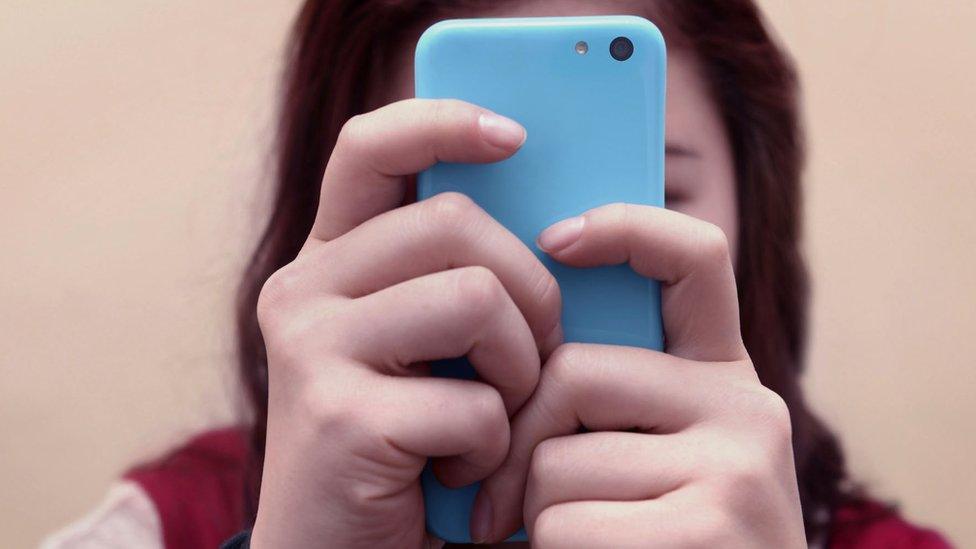Utah is first US state to limit teen social media access
- Published

Utah has become the first US state to require social media firms get parental consent for children to use their apps and verify users are at least 18.
The governor said he signed the two sweeping measures to protect young people in the state.
The bills will give parents full access to their children's online accounts, including posts and private messages.
The move comes amidst heightened concern over the impact of social media on children's mental health.
Under the measures enacted on Thursday, a parent or guardian's explicit consent will be needed before children can create accounts on apps such Instagram, Facebook and TikTok.
The bills also impose a social media curfew that blocks children's access between 22:30 and 06:30, unless adjusted by their parents.
Under the legislation, social media companies will no longer be able to collect a child's data or be targeted for advertising.
The two bills - which are also designed to make it easier to take legal action against social media companies - will take effect on March 1, 2024.
Governor Spencer Cox, a Republican, wrote on Twitter: "We're no longer willing to let social media companies continue to harm the mental health of our youth.
"As leaders, and parents, we have a responsibility to protect our young people."
Children's advocacy group Commons Sense Media welcomed the governor's move to curtail some of social media's most addictive features, calling it a "huge victory for kids and families in Utah".
"It adds momentum for other states to hold social media companies accountable to ensure kids across the country are protected online," said Jim Steyer, Common Sense Media's founder and CEO.
Similar regulations are being considered in four other Republican-led states - Arkansas, Texas, Ohio and Louisiana - and Democratic-led New Jersey.
But Common Sense Media and other advocacy groups warned some parts of the new legislation could put children at risk.
Ari Z Cohn, a free speech lawyer for TechFreedom, said the bill posed "significant free speech problems".
"There are so many children who might be in abusive households," he told the BBC, "who might be LGBT, who could be cut-off from social media entirely."
In response, Meta, Facebook's parent company, said it has robust tools to keep children safe.
A spokesperson told the BBC: "We've developed more than 30 tools to support teens and families, including tools that let parents and teens work together to limit the amount of time teens spend on Instagram, and age verification technology that helps teens have age-appropriate experiences."
There has been other US bipartisan support for social media legislation aimed at protecting children.
President Joe Biden's State of the Union address in February called for laws banning tech companies from collecting data on children.
Last year, California state lawmakers passed their own child data law. Among other measures, the California Age-Appropriate Design Code Act requires digital platforms to make the highest privacy features for under-18 users a default setting.
The passage of the Utah bills coincides with a bruising congressional hearing for TikTok CEO Shou Zi Chew.